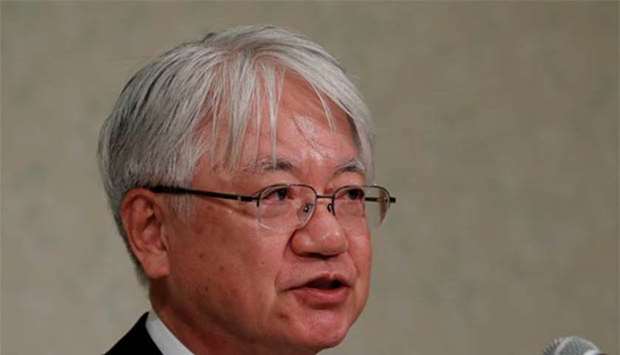Japan's Kobe Steel admitted on Friday that a snowballing falsified data scandal had affected around 500 customers, more than twice as many as initially thought.
The new estimate comes as Kobe Steel's battered stock fell almost 9% to finish at 805 yen ($7.20), down more than 40% since the start of the week after it admitted falsifying strength and quality data for a string of products -- a practice it said may have started a decade ago.The embarrassing scandal for a venerable firm that once employed Prime Minister Shinzo Abe has already hit wide sections of Japanese industry, including automakers Toyota, Nissan and Honda which used the materials in their vehicles.
The company had previously admitted to falsifying quality data for products sold to some 200 clients.
"Combined with previously announced clients, it will total about 500 firms," Yoshihiko Katsukawa, a senior Kobe Steel executive, told a press conference.
"Please let us refrain from naming specific clients that have been affected. We have communicated with our customers and have discussed ways to confirm the safety" of our products, he added.
The CEO of Japan's number-three steelmaker insisted Friday that the affected products did not appear to pose a safety risk.
The company and its clients agreed on certain quality specifications, which it did not meet in many cases.
"So far, our review and investigation has shown there has not been any problem that raises concrete doubts about the safety of our products that
did not meet specifications," Hiroya Kawasaki told a press briefing.
"We are resolved to take swift and appropriate actions when and if we see cases that raise safety doubts in our products."
On Thursday, Kawasaki acknowledged that trust in his firm has "fallen to zero".
"The crisis is ongoing so it's tough to know at this point how big the impact on the company will be and which industries it will affect," Hideyuki Suzuki, head of the investment information section at SBI Securities, told AFP.
"Kobe Steel's share price will hit bottom once the financial impact on the company becomes clear," he added.
About 66% of the company's sales are in Japan with the rest to China and other overseas markets.
The crisis marks the latest in a string of quality control and governance scandals to hit major Japanese businesses in recent years, undermining the country's reputation for quality.
The affected products include steel wires used in car engines and tyres -- a key company product -- as well as aluminium found in Japan's bullet trains and materials in high-speed trains in Britain.
"If it was found that there are safety problems (with steel wires) it could shake the foundation of Kobe Steel," Takayuki Atake, manager of credit research at SMBC Nikko Securities, said in a report.

